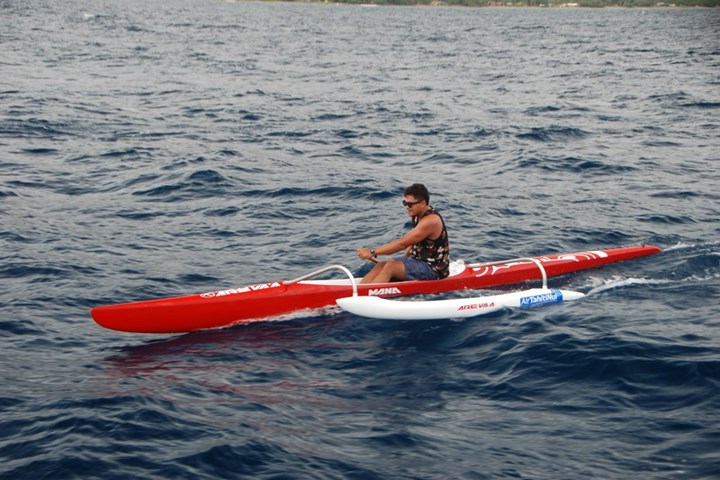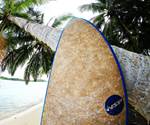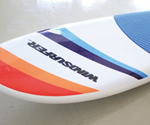Cobra International mass produces new composite canoes
Cobra’s manufacturing process for ARE Tahiti’s carbon fiber and glass/carbon fiber hybrid OC-1 canoe models enables production of up to 50 per month.

Cobra International (Chonburi, Thailand) announced on Nov. 23 that it has shipped its first 36 composite canoes to outrigger canoe brand ARE Tahiti. The companies have collaborated on the mass production of a new OC-1 canoe, called “Mana,” which features a closed deck on which the paddler sits on top of the hull. There are two models: a 12-kilogram hybrid version comprising an 80:20 mix of E-glass and carbon fiber reinforcement fabrics, and the full carbon fiber version PRO model weighing as little as 9 kilograms.
“We required the best in composite construction for both models, a stunning final finish and a build rate that could keep up with our growing order book,” says former professional windsurfer Baptiste Gossein, who designed the canoe.
According to Cobra, a master model formed the basis of the mass production tooling, and two sets of composite hull tooling were taken from the master plug to enable a build rate of up to 50 OC-1 canoes per month. Cobra’s high-performance PVC foam sandwich windsurf board construction process provided the starting point for the canoe’s layup and manufacturing process.
“This is a sector in which we expect to see significant expansion over the next few years.”
Using vacuum-consolidated epoxy wet layup for the mix of woven and stitched biaxial reinforcements, Cobra says it was able to meet the customer’s weight target with minimal waste and additional consumables. Top and bottom sections of the hull were molded separately then bonded together, with the smaller outrigger hull — known as the “ama” — produced in the same way. Prepreg carbon fiber and in-house split mold tooling were also used to the make the two crossbeams — called “Iakos” — that join the ama to the main hull. An in-mold applied finish coat was used for the hybrid OC-1, and Cobra’s ultra-light paint system for the PRO carbon fiber model.
“Cobra is able to provide mass production capability and rapid new model turnaround, as well as delivering consistently high quality. We are delighted with the first COBRA built OC-1s and have received exceptionally positive feedback from both customers and racers,” says Gossein.
Cobra says it will also work with ARE to mass produce a V-1 canoe model, which will be an open boat that the paddler sits inside, and that operates without a rudder or steering system.
“The OC-1 outrigger canoe is a superb example of our customer-focused approach to production process development. By working closely with Baptiste and the ARE team, Cobra is able to provide mass production capability and a rapid new model turnaround, as well as delivering consistently high quality. This is a sector in which we expect to see significant expansion over the next few years,” says Danu Chotikapanich, CEO of Cobra International.
Related Content
-
Glass fiber-reinforced Akulon RePurposed recyclate enables Ahrend sustainable office chair
Envalior 30% glass fiber-reinforced Akulon RePurposed material helps Ahrend achieve lighter task chair with closed-loop value chain and reduced emissions.
-
Repurposing wind blades as functional community art pieces
Ohio-based Canvus Inc. upcycles fiberglass wind blades, car tires and post-consumer plastics to create outdoor furniture that amplifies sustainability messages in community spaces.
-
ExoTechnologies completes testing on recyclable motorcycle helmet
Helmet fabricated from Danu composites demonstrates improved weight reduction, impact resistance and complete recyclability compared to carbon fiber alternatives.

.jpg;width=70;height=70;mode=crop)













